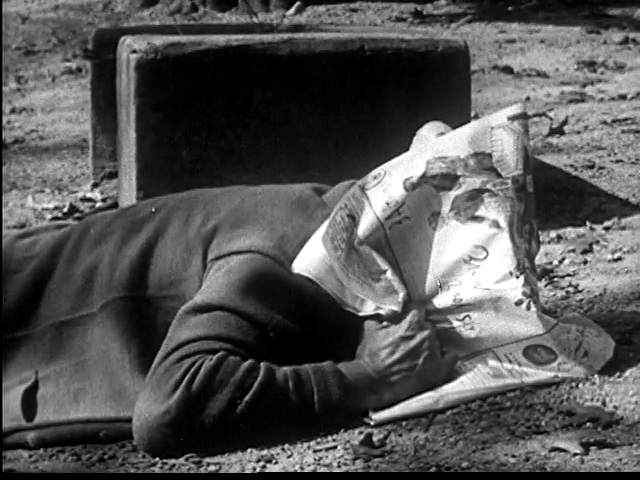
I’m not saying it’s over, but it looks like it’s over.
Thank God.

According to Harvard political scientist Robert Rotberg, states fail because of the purposeful actions of their leaders. In writing these words in an edited volume back in 2007, Rotberg was referencing countries like Zimbabwe under the disastrous rule of Robert Mugabe in the 1990s and 2000s, or later Syria under Bashar Assad.
State failure doesn’t just happen. Rotberg writes:
Nation-states do not stumble into failure. Human agency is always the proximate cause. … [Even the weakest states] teeter on the precipice of failure only if and when they cheat their citizens or give unfair preference to one set of elites over another or over ordinary citizens.
I’m reviewing these arguments as I sit in my office because I’m discussing them with my students tonight in the class I’m teaching on international conflict and security. Toward the end of his chapter Rotberg lays out the warning signs of the dynamic process that is state failure. It is a process that always begins with the decisions of those holding power at the top.
I am struck by how familiar these warning signs appear in the fraught political moment we are currently living. The signals are economic, political, and violent.
Economic signs of a state slipping into failure include the drying up of foreign investment, massive job losses, and falling per capita incomes. Critical infrastructure, public education, provision of health care, and entitlement programs are chronically underfunded, cracking under the strain of government neglect. Meanwhile, the rulers tend to benefit from the economic inequalities being inflicted upon their citizens. As the poor get poorer, the rulers and their cronies get richer.
Does that sound familiar?
Political signs of impending state failure are signaled when leaders and their associates subvert existing democratic norms, restrict political participation of all kinds, including voting rights, crack down on civil society, and override institutional checks and balances on their own power. Regimes going down this path curtail judicial independence, harass the media, and co-opt the security forces into a mailed fist answering to the personal whims, interests, and dictates of the ruler. Rotberg writes:
[R]ulers show more and more contempt for their own nationals; surround themselves with family, lineage, or ethnic allies; and greatly narrow the focus of concern and responsibility.
Does that sound familiar?
The last warning signal is also the most ominous. If the level of societal violence rises precipitously, the state is clearly failing.
Does that one sound familiar too?
So here’s a question: What can we do to arrest the trend? Because, as Rotberg argues, corrupt autocrats and their associates usually have little incentive to arrest the slide into state failure. They benefit from it.
How about this. If you can vote early, do so. If you are voting absentee, don’t trust it to the postal service. Take your ballot to your town clerk’s office or to an official ballot dropbox. And if you haven’t done those things, then do what I’m going to do.
Go to your local polling place next Tuesday, Nov. 3, and cast your vote for candidates that will work to turn this thing around. What can we do?
We can vote.

Donald Trump and Joe Biden square off in the first of three presidential debates tonight starting at 9 pm. And while I’d like to treat it like the fellow above, I’ve got to watch it so I can sound smart on the radio tomorrow. Because misery loves company, you should watch it too.
So what should we watch for? Well, the New York Times suggests this is Trump’s best chance to change the narrative of a race where he’s lagging far behind. So from Trump expect a lot of personal attacks on Biden and his family, and a loose relationship with facts and the truth. Biden has to avoid taking Trump’s bait and keep rein on his temper and emotions.
Meanwhile, The Washington Post points out that Trump hasn’t really prepared, believing his experience as president is preparation enough, and testing out attack lines on close aides and with rally audiences; moderator Chris Wallace doesn’t intend to act as a live fact checker; and any slips of Biden’s will likely pale besides those of his counterpart.
Over at Politico, the writers compile what they expect to be the “10 biggest whoppers” told on the stage tonight. Brace yourself for this, but they expect most of these — 7 out of 10 — will come from Trump.
John Dickerson at The Atlantic reminds us that debates are about more than facts. Rather they are a window into a candidate’s temperament, character, and style of leadership. As I suggested last week, I think we have that covered when it comes to Donald Trump. But we might see something interesting about Joe Biden tonight. Besides, the burden of fact checking really ought to be on us as viewers.
Finally, will tonight’s debate really matter? Well, according to the folks at fivethirtyeight.com, first debates tend to help the challenger more than the incumbent, though that may not play out this time around. There are frankly too few undecided voters left to be persuaded. And Biden may have the most to lose because he’s so far ahead.
So there you go. You can read all of that, or just take it like the guy in the photo. I know which one I’d choose if I could.
If you’re curious about that photo, it’s a still from the classic 1951 Civil Defense film “Duck and Cover,” starring Bert the Turtle. Watch it here.

The convictions that leaders have formed before reaching high office are the intellectual capital they will consume for as long as they continue in office.
Henry Kissinger
Being president doesn’t change who you are, it reveals who you are.
Michelle Obama
I’m opening this post with these quotes because I’m spending a beautiful early fall afternoon depressing myself by reading over the last nearly five years of pieces I’ve written in this space about Donald Trump. I link to a bunch of them individually below, but if you want to suffer along with me, here’s a link where you can find all, or nearly all of them.
One thing is really clear to me. We have known all along who and what Donald Trump is, and we elected him anyway.
Take this example, from Dec. 7, 2015, my very first entry on him, right after Trump called for “a total and complete shutdown of Muslims entering the United States …”
And so Trump takes the fear and xenophobia already rampant in Republican ranks, already being stoked by his slightly less hysterical rivals, and ramps it to new, nauseating heights.
When he declared, most everyone, myself included, played the Trump candidacy as a diversion, an amusing little gag. Well the joke’s not funny any more. It’s really not.
As I wrote four years later, Trump’s pitch was not a bug but a feature:
Way back in 2015, Donald Trump began his run for the White House with a naked appeal to fear rooted in racism. And for the last four years, as he first campaigned and then as he has governed, his tune has remained the same.
In hindsight, the joke never was funny, no matter how many people fell for it then, and still fall for it now. Trump, ever the showman with the uncanny ability to manipulate the media while lying with the ease of one for whom it comes naturally, knew how to give the people what they wanted, and what they wanted was someone who appeals to their base instincts, angers, and resentments. And he knew then, and knows now, who his best friends are, European fascists and American racists and anti-semites.
Which squares perfectly with his fondness for and admiration of authoritarian strongmen, his lust for the adulation they can command, and his craving for the power they enjoy but our system (so far) has managed to deny him. His refusal to commit himself to a peaceful transfer of power should he lose in November is no surprise given his refusal to commit to honoring the outcome in 2016 if Clinton won. That he has armed militia followers who might back that play in 2020 should not surprise either given the pro-Trump stance militias took four years ago.
So what are we to do now, with less that 40 days until the general election? My answer today is the same as what it was in March 2019, when Democrats were still entertaining the fantasy that Robert Mueller, or impeachment, or the US Attorney for the Southern District of New York, or the 25th Amendment, or some other deus ex machina might rid the country of Trump.
We’ll have to beat him at the polls. By voting early and in person where allowed, by mailing in our absentee ballots as soon as possible to ensure our votes are counted, or by walking into our local polling place on Nov. 3 and filling out our ballots, which is what I am going to do.
Joe Biden wasn’t your first choice? Hey, mine either. But given the stakes, #ADWD.